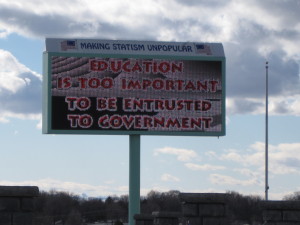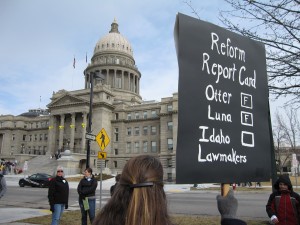As people, we fail when we react to words rather than trying to understand what is meant by them.
Business, political, educational, and civil rights leaders jumped on the idea that outcomes in the form of test scores were the way to go for education reform partially because the words made the idea sound good – “close the achievement gap.”
The idea was sold to the public, and many, many very intelligent people bought it. The end result was the federal testing law called No Child Left Behind.
Achievement, judged by standardized tests, is the basis of the “accountability” mechanism that has yet to hold the system itself accountable for the high cost and little results of the last eleven years—let alone the damage. “Flexibility” disappeared from classrooms whose children most needed it, and “choice” didn’t leave many options for improving all schools.
During this whole fiasco, we failed to keep an open mind that would allow us to accept the evidence and our mistakes. Denial is a human defense mechanism. But it is time for adults to put aside their own stance and do the right thing — admit that testing is not what improves schools.
Our education dollars, time, and efforts will be better spent developing an understanding of school improvement and what it will take to fulfill our obligation to provide equal access to quality education; setting excellence as the norm, understanding change, the importance of school culture in the change process, and how change can lead to improvement and lasting progress.
But who is asking us? Certainly not open-minded people ready to hear and accept solutions.
To all those who were wrong; do the honorable thing, accept your failure, and open your mind.
To all those wanting to help the effort to do the right thing for public school children, share this with someone outside your circle of like-minded associates. Start a conversation.











